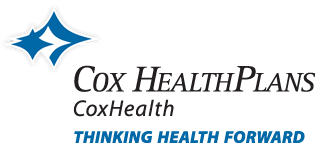Tips for Preventing High Blood Pressure
June 18, 2021, 4:00 pm
Cox Healthplans (CHP) makes wellness a priority for members. As such, preventing high blood pressure can help lower your risk for heart disease and stroke.

Follow these healthy habits listed on the CDC’s website:
- Eat a healthy diet: Choose healthy meal and snack options to help you avoid high blood pressure and its complications. Be sure to eat plenty of fresh fruits and vegetables. Talk with your health care team about eating a variety of foods rich in potassium, fiber, and protein and lower in salt (sodium) and saturated fat. For many people, making these healthy changes can help keep blood pressure low and protect against heart disease and stroke. Visit the CDC’s Nutrition, Physical Activity, and Obesitywebsite to learn more about healthy eating and nutrition.
- Keep yourself at a healthy weight: Having overweight or obesity increases your risk for high blood pressure. To determine whether your weight is in a healthy range, doctors often calculate your body mass index (BMI). If you know your weight and height, you can calculate your BMI at CDC’s Assessing Your Weight website. Doctors sometimes also use waist and hip measurements to assess body fat. Talk with your health care team about ways to reach a healthy weight, including choosing healthy foods and getting regular physical activity.
- Be physically active: Physical activity can help keep you at a healthy weight and lower your blood pressure. The Physical Activity Guidelines for Americansexternal iconrecommends that adults get at least 2 hours and 30 minutes of moderate-intensity exercise, such as brisk walking or bicycling, every week. That’s about 30 minutes a day, 5 days a week. Children and adolescents should get 1 hour of physical activity every day. Visit the website for CDC’s Division of Nutrition, Physical Activity, and Obesity to learn about ways you can be physically active.
- Do not smoke: Smoking raises your blood pressure and puts you at higher risk for heart attackand stroke. If you do not smoke, do not start. If you do smoke, quitting will lower your risk for heart disease. Your doctor can suggest ways to help you quit. For more information about tobacco use and quitting, see CDC’s Smoking and Tobacco Use Web site.
- Limit how much alcohol you drink: Do not drink too much alcohol, which can raise your blood pressure. Men should have no more than 2 alcoholic drinks per day, and women should have no more than 1 alcoholic drink per day. Visit the CDC’s Alcohol and Public Health websitefor more information.
- Get enough sleep: Getting enough sleep is important to your overall health, and enough sleep is part of keeping your heart and blood vessels healthy. Not getting enough sleep on a regular basis is linked to an increased risk of heart disease, high blood pressure, and stroke. Visit CDC’s Sleep and Sleep Disorders website for resources on how to get better sleep.
If you have any questions about your blood pressure, contact your primary care physician today. Don’t have a primary care physician? Visit https://www.coxhealth.com/services/primary-care/ or contact 417-269-INFO to get help finding a primary care physician.
Source: https://www.cdc.gov/bloodpressure/prevent.htm
